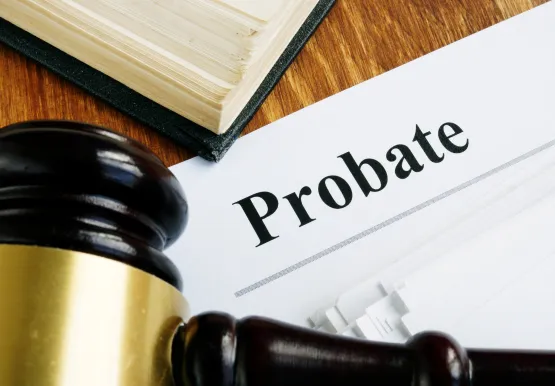Protect What Matters
Probate
Probate can be a challenging and time-consuming process, often involving intricate legal procedures and paperwork. Our professional team provides practical guidance and support throughout every step, ensuring the estate is administered efficiently and in accordance with the deceased's wishes and applicable laws. We assist executors and beneficiaries in understanding their rights and responsibilities, handle estate inventory and valuation, manage creditor claims, and facilitate the smooth transfer of assets. Our goal is to streamline the probate process, reduce stress for all parties involved, and resolve matters as swiftly and smoothly as possible.
(Advanced Legal Planning, LLC Partners with trusted litigation counsel for most probate matters.)
When someone dies, loved ones are often overwhelmed with the grief and pain of loss. Advanced Legal Planning understands and appreciates the difficulties you are facing. This grief is often compounded by daunting legal and estate issues that must be dealt with. Advanced Legal Planning faces these matters with empathy and consideration.
When Is Probate Necessary?
Probate is usually necessary if the deceased person (the “decedent”) owned real estate or other assets, in their own name, at the time of death. Transferring assets into a “Trust” avoids probate.
The decedent’s real and personal property are called the “estate” of the decedent. Probate is the process of resolving the affairs of the decedent by paying debts of the estate and then distributing the remainder as the Court directs.
Probate is usually required if the estate includes real property (land, a house, mineral rights, etc.) of any value, or the estate has personal property worth more than the “small estate” statutory dollar amount.
When probate is legally required, it is best to have it done as soon after the death as possible. A trust designed by Advanced Legal Planning can help avoid probate altogether.


Different Kinds Of Probate In Kansas
Without the assistance of Medicare, the monthly expense is difficult for most families to cover. There are three options to pay for Long Term Care expenses.
Supervised Administration of Estates
Supervised Administration usually arises because there is disagreement about who should be appointed as Personal Representative, or how the estate should be administered. An interested party petitions the Court to make those decisions.
Supervised Administration probate requires notice to all potential interested parties before the Court appoints an Executor. This gives parties an opportunity to file an objection or file a competing request for appointment.
Supervised Administration requires court consent to pay expenses, taxes and to sell most property. Any buyer of property must pay at least 75% of the value of the property.
Simplified Administration of Estates
Simplified Administration probate is usually available when all interested parties consent to it.
If there is no Will, or if the existing Will does not provide for informal administration, it is still possible for the Personal Representative to ask the court for authority to administer the estate through Simplified Administration.
In Simplified Administration the Executor does not have to obtain judicial permission to collect assets, pay creditor claims, make partial distributions, or pay taxes. (Sales of real estate may still require judicial approval.)
Small Estate Affidavit
If probate is not required by law, it may be possible to collect personal property (such as money in a bank account) using a small estate affidavit. In Kansas, a small estate affidavit is not filed with the Court. Instead, the decedent’s successor completes a notarized affidavit and gives it to any third parties to gain access to the personal property of the decedent.
This method of probate can be used if:
— There is no real property in the estate
— The fair market value of the entire estate, less liens and encumbrances, is under $75,000
— No application or probate petition is pending or has been granted in any jurisdiction
Talk to an Advanced Legal Planning attorney about your probate matter.
Due to time and family constraints (see About the Attorney), Advanced Legal Planning, LLC does not represent probate clients directly. However, ALP has relationships with qualified firms to handle probate while Advanced Legal Planning makes sure no one in your family ever has to go through that process again.

FAQS
What is estate planning, and why is it important?
Estate planning is the process of structuring your assets to ensure they are distributed according to your wishes after your passing or incapacitation. Estate Planning helps you minimize taxes, avoid legal disputes, provide for your loved ones, and maintain control over your financial affairs. Proper Estate Planning can also protect your beneficiaries from creditors and other potential risks.
What documents are typically included in an estate plan?
Key estate planning documents include a will, trusts, a financial power of attorney, a healthcare power of attorney, living will, beneficiary designations, and guardianship designations. Each document serves a specific purpose and can be customized to suit your unique circumstances and goals.
How often should I review and update my estate plan?
It is generally recommended to review and update your estate plan every 3 to 5 years or after significant life events such as marriage, divorce, birth of a child, death of a beneficiary, or substantial changes in your assets or financial situation. Regular reviews ensure that your estate plan remains current and accurately reflects your wishes.
One way to make sure your plan is up to date is to join a maintenance program. A maintenance program assures your plan is being reviewed regularly and gives easy access to an attorney if you have any questions or need any changes.
What happens if I die without a will or estate plan in place?
If you pass away without a will or estate plan, your assets will be distributed according to your state’s “intestacy ” laws, which may not align with your preferences. This can lead to family disputes, increased legal expenses, and increased hardship for your loved ones. It is crucial to have a well-crafted estate plan in place to ensure your wishes are honored.
Can I create my own estate plan, or should I consult with an attorney?
While it is possible to create your own estate plan, working with an experienced estate planning attorney is highly recommended. An attorney can help you navigate complex legal requirements, identify potential issues, and create a customized plan that addresses your unique circumstances and goals. This ensures that your estate plan is effective and legally sound. This provides peace of mind for you and your loved ones.
What is the difference between a revocable trust and an irrevocable trust?
A revocable trust is a flexible legal arrangement that allows you to maintain control over your assets during your lifetime and make changes to the trust as needed. Upon your death, the trust becomes irrevocable, and assets are distributed to your beneficiaries.
An irrevocable trust, on the other hand, is a permanent arrangement that cannot be altered or revoked once established. Irrevocable trusts offer greater asset protection and tax benefits but require you to relinquish control over the assets placed in the trust. An experienced Estate Planning attorney can create “some” flexibility to an irrevocable trust while maintaining its benefits.
How can elder law and Medicaid planning help me and my family?
Elder Law and Medicaid Planning involve navigating the complexities of aging, long-term care, and government assistance programs. By working with an experienced attorney, you can develop a strategy to secure quality care, preserve your assets, and expedite your eligibility for Medicaid benefits. This process can help alleviate financial burdens and provide peace of mind for you and your family.
What is special needs planning, and why is it important?
Special needs planning is the process of creating a comprehensive plan to support a loved one with special needs, ensuring their long-term well-being and financial security. This can involve establishing a special needs trust, selecting appropriate guardians, and identifying government benefits and resources. Proper planning can help your loved one maintain their independence, quality of life, and access to essential support services.
What is the role of a trust administrator, and what are their responsibilities?
A trust administrator, also known as a Trustee, is responsible for managing and distributing trust assets in accordance with the terms of the trust agreement. Their duties may include investing assets, paying taxes, maintaining records, communicating with beneficiaries, and addressing any legal or financial issues that arise. Trust administration requires a thorough understanding of fiduciary responsibilities and trust laws to ensure compliance and protect the interests of the beneficiaries.
Do you serve Derby and Wichita, KS?
Yes, we proudly serve both Derby and Wichita, Kansas through our by-appointment offices. Whether you're nearby or across the state, we can meet in person or virtually to ensure your planning needs are met with care and convenience.
What does estate planning cost in Kansas?
The cost of estate planning in Kansas varies based on the complexity of your needs. Simple wills and powers of attorney may start at a few hundred dollars, while comprehensive estate plans — including trusts, Medicaid planning, and special needs provisions — are higher. We offer transparent pricing and will walk you through options during your consultation.
How long does Medicaid planning take?
That depends on whether you're pre-planning or already in crisis. Pre-planning can take 2–4 weeks to prepare documentation and strategy. In crisis situations (like nursing home entry), we act immediately — but the full Medicaid process, including approvals, can take several months. Starting early is always best.
Do I need an attorney for estate planning?
While DIY estate planning tools exist, they often miss important legal and personal details. Working with an attorney ensures your documents are valid, state-compliant, and truly reflect your wishes — especially for blended families, special needs dependents, or asset protection goals.
Get In Touch
Call (316) 252-2233 for Professional Medicaid & Estate Planning
Derby Office
111 N. Baltimore Ave Derby, KS 67037
Mon – Fri 9am to 5pm
Sat & Sun – Closed
Wichita Office
10300 W Central Ave Wichita, KS 67212
Mon – Fri 9am to 5pm
Sat & Sun – Closed


Youtube